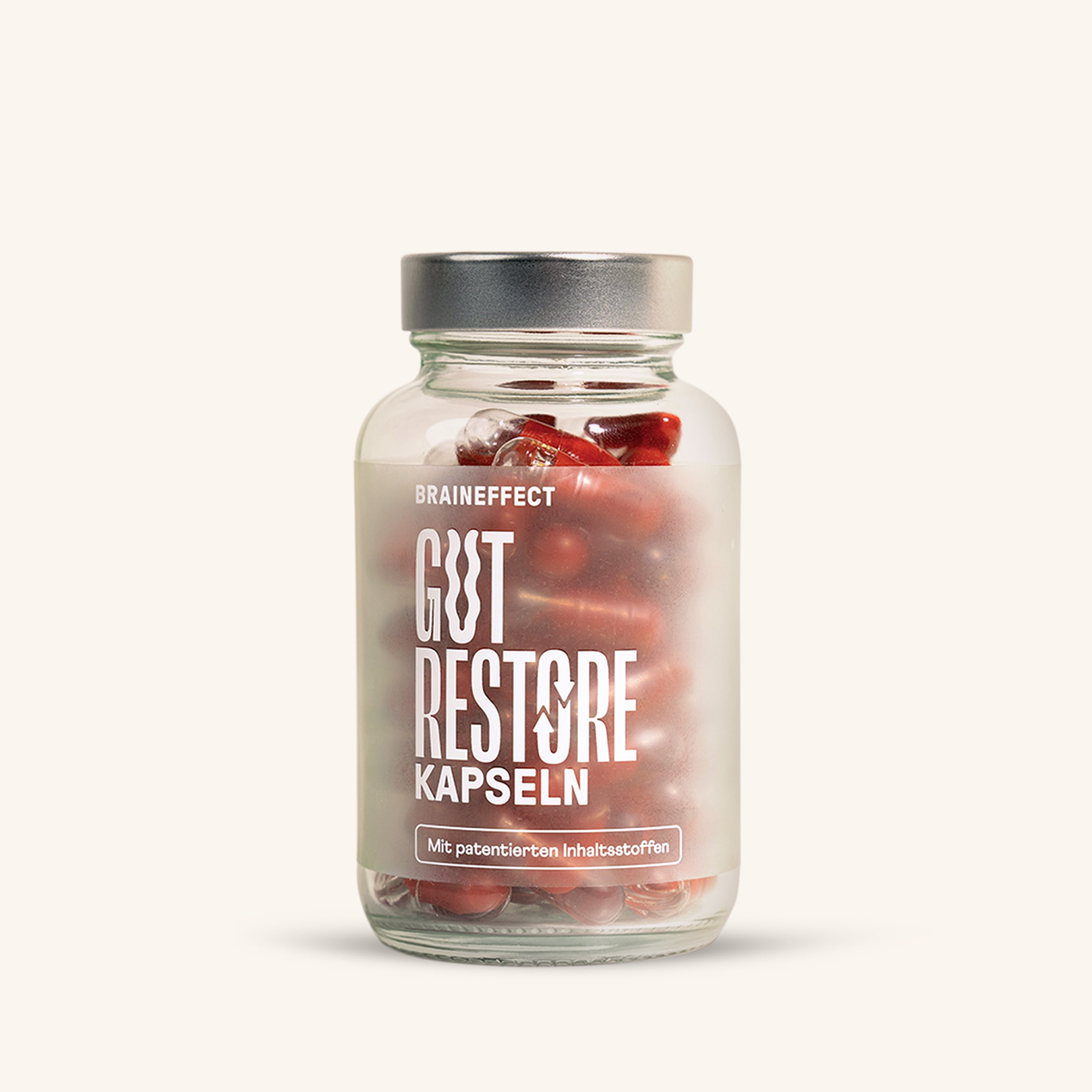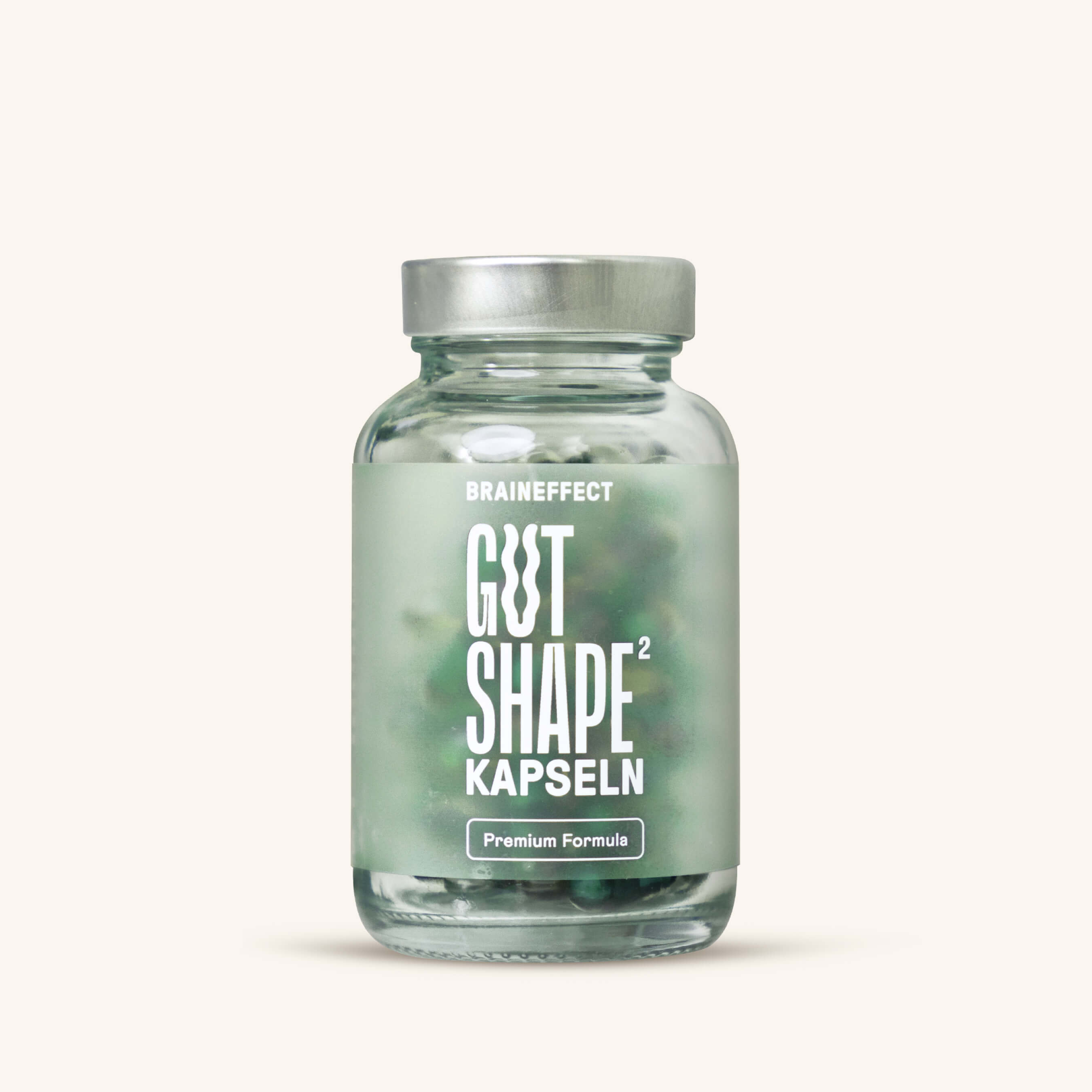We will show you how to improve your regeneration to be able to give 110% again more quickly.Whoever performs, needs a break. The principle is actually quite simple. And yet many people forget that the body deserves a regeneration phase more often if it is to function permanently and, above all, be able to perform better. No matter if in sports or mentally: Without regeneration, you won't reach your goal. Here you can find out how to support your regeneration.
Table of contents
1. Why is regeneration so important?
You feel totally drained because you're always running at full speed? Do you constantly expect top mental performance from yourself or do you want more gains from sports? Your ambition and discipline are worthy of you - but your body and mind need a break after demanding workouts to develop further.
Most people understand "regeneration" to mean the rest phase between two power units. And it is far more important than many people think. It's not for nothing that people talk about "recharging the batteries". But regeneration is much more than just resting and doing nothing.
It is associated with the restoration of damaged tissue or organs, which takes place through the formation of new cells during cell division. For example, muscles that have received small tears through intensive training are repaired. At the same time, your energy stores are replenished so that you can give full power again after a break.
If this phase of recovery due to permanent pressure to perform fails to materialize, damage to the organism can occur - including broken joints, muscle injuries, weakening of the immune system, and general susceptibility to injuries.
Take-Home Message #1: Only through regeneration can you achieve homeostasis and increase your performance. So take a breather from time to time and treat yourself to a little time-out. Because: Even in the phase before and after training your muscles “grow” and your endurance improves.
2. Regeneration after sport - the most important unit
Unfortunately, more is more doesn't work in competitive sports. In the peace and quiet lies, the power is the motto that will bring you further forward. The more intensively you train, the longer the regeneration should be, in order to promote muscle building.
At least one to three days per week are needed for the muscles to rebuild themselves during the resting phase. This is because the powerhouses are not created during training, but in the break afterwards. This is also confirmed by a Finnish study that examined the muscle build-up in strength athletes in the days after the training session [1].
Professional sportsmen and women have of course known this for a long time. But also hobby sportsmen should lower their ambition a little bit. Not going into training every few days and letting your soul dangle in return has nothing to do with a guilty conscience, but can be exactly the tactic that will get you to your goal.
Sport is actually pure stress for the body - and it wants to be relieved afterwards. Through the alternation of stress and regeneration, a habituation effect sets in, which ultimately leads to an increase in your performance and fitness.
If it remains at the pure stress level caused by sport, the performance stagnates and can even decrease. With the right measures, you can support your body in its regeneration process and then switch back to Beast Mode at full power. Here are our tips:
- Sufficient sleep : A restful sleep phase is the most important regeneration method after sports. Because in Sleep among other things, the small muscle injuries that occur during training are repaired.
-
Healthy nutrition : Only through a nutrition rich in vital substances provides the body with all the building blocks that it needs for regeneration. These building blocks are enormously important for cell division and for the reconstruction of damaged tissue. After a training session, the body needs high-quality amino acids for replenishing the amino acid level. As post-workout drinks are therefore suitable for drinks containing amino acids such as RECHARGE and COMPLETE AMINOS.
- Drink a lot : The body cannot function without water. Because only with sufficient fluid can the important nutrients be transported to where they are needed. At the same time waste products and toxins are removed from the cells. Of course: no alcohol! It impairs the positive training effect on and hinders regeneration.
- Ice Baths : Since the 2014 Football World Cup at the latest, top athletes have been swearing by the ice buoy. The Cold increases the circulation and thus stimulates the muscle recovery. At the same time they also reduce pain in the muscles. Ice baths can be particularly useful if the regeneration time is to be shortened because performance has to be restored the next day. You can read more about this in our article about cold thermogenesis.
- Sauna : The change between cold and warm is very beneficial for the blood circulation. Regular sauna sessions relax the tissue, boost the metabolism and the immune system and are pure wellness for body and soul. Alternatively, alternating showers can also help.
- Physiotherapeutic measures: Manual therapy, massages and relaxation exercises help the body to recover quickly after the stress.
- Active recovery: While the above-mentioned measures belong to the passive regeneration methods, there is also active recreation. Because regeneration phase does not mean that you should lie lazily on the sofa for one or two days to stimulate muscle building. The rest period just means that you do not train to the limit of your strength on these days. Instead of strength training, you can go for a walk, jogging, swimming or cycling on regeneration days, as long as you don't work out.
The cool-down after your sports unit is also part of active relaxation. Loose running out or stretching initiates the regeneration phase after tension and should not be neglected.
The movement keeps blood circulation and metabolism active, which in turn shortens the recovery phase. The positive effect on regeneration is confirmed by a study from Glasgow, in which it was shown that lactate levels fall more quickly again during active recovery [2].
Swimming also seems to have a regenerating effect. Researchers at the University of Western Australia observed the relaxing effect of moderate swimming training one day after an intensive running session [3]. However, it has not yet been clarified whether this is due to light exercise or the regenerative properties of water.
In general, the younger the body, the faster it regenerates. The older, the more time it takes. How long the regeneration phase lasts is individual. If the muscles are ready for use again after one to three days and the sore muscles have disappeared, the next training session can begin.
Take-Home Message #2: Passive and active regeneration support the recovery phase of the muscles after sport.
BRAINEFFECT HACK : To support your regeneration and training success optimally, the right nutrition is the key. Proteins, amino acids, vitamins, minerals and high-quality energy sources are now in demand.
Our post-workout drinks RECHARGE supplies you with important amino acids and minerals and refreshes you directly after training. Our fruity COMPLETE AMINOS provide you with all the essential amino acids already during training and thus protect your muscles from breakdown.
3. Mental Regeneration
In principle, all regeneration rules for sport can also be applied to the brain. Because if you are permanently overstrained, the synapses go crazy and everything you have left is a total blockage of your thoughts.
The nerves also need regeneration in order to process and transmit information effectively. Just as too much exercise can weaken the immune system, increased mental stress is not good for health.
Body and mind belong inseparably together. If you do your best in sports, your ability to think will automatically decrease. And vice versa: If you are under enormous stress, you are physically not able to call up full power.
In return your body benefits from a calm and clear mind. To get down, a short walk or a breathing exercise can be enough.
Additional measures that support mental regeneration are
- Yoga: The practice of Yoga combines the regeneration of the body and the brain. Through the physical practice of the asanas, the alternation of tension and relaxation, the focus on oneself and the subsequent meditation, regeneration is stimulated in all areas.
- Meditation: A regular meditation session for regeneration is like a holiday for the psyche. The mind can simply switch off for a few minutes.
- Autogenic training: Autogenic training has also proven itself as a relaxation method.
A study by the University of Potsdam has shown the stress-reducing effect of both yoga and autogenic training [4]. Just find out which relaxation method is right for you and give your brain a break more often.
Take-Home Message #3: The brain also needs regeneration for more mental performance, because body and mind belong inseparably together.
4. Promoting regeneration through sleep
Do you think four to six hours of sleep a day is enough to recover? Unfortunately, you're wrong - unless you're one of the very, very few people who actually need little sleep. Or you are already over 60, because older people also get by with less sleep.
However, most of them take an average of seven to eight hours, depending on how active you are during the day. But sleep alone is not enough: It must be restful! If you effectively fall asleep immediately during the six hours, sleep through the night calmly and wake up rested, then congratulations!
But let's be honest: far too often you roll back and forth in the pillows, can't find your way into a deep sleep, ponder over the day, wake up again and again and are finally torn from the most beautiful dreams by the alarm clock. You should not take your night's rest lightly, because bad sleep can have a negative effect on your health.
A reduced metabolism, slower regeneration, weakening immune systems and poorer cognitive abilities are just some of the possible consequences of too little or too bad sleep. Muscles and brain cannot recover properly during poor sleep and you do not get the optimal benefit.
Here, however, you can take active steps to improve your regeneration during sleep:
- Maintain regular sleeping hours. Try to find your own rhythm. Do you fall asleep better early in the evening? Or rather later? The best way to test how many hours of sleep you wake up rested and refreshed is to go on holiday. Adopt this rhythm in your everyday life and keep it at the weekend.
- The optimal sleeping climate is 18 degrees. If your bedroom is too warm, your sleep suffers.
- Television, phones and tablets are banned from the bedroom, because blue light keeps you up unnecessarily long.
- Before going to bed you should neither eat too much nor too little.
- I want your bedroom to be an oasis of calm. Disorder prevents you from getting a restful night's sleep.
- Food supplements with Melatonin can help you fall asleep faster and wake up refreshed in the morning.
- If you are often awakened by sounds at night, earplugs are one way to block them out. Also a sleep mask if bright street lights disturb your sleep.
BRAINEFFECT HACK : To supply you optimally with melatonin, we have developed SLEEP SPRAY !
5. Conclusion
Good regeneration is a decisive factor for your mental and physical performance. Through various active and passive regeneration methods you can make your recovery more effective and possibly even shorten it. Besides a balanced diet, sufficient sleep after strenuous phases is especially important for your regeneration.
6. Sources
[1] https://www.ncbi.nlm.nih.gov/pubmed/21311349
[2] https://www.ncbi.nlm.nih.gov/pubmed/20544484
[3] https://www.ncbi.nlm.nih.gov/pubmed/19908172
[4] http://www.yoga-vidya.de/downloads/Wirksamkeit_von_Yoga_und_Autogenem_Training.pdf
{{widget type="egproducts/list_featured" template="elegento/products/listslider.phtml"}}
















